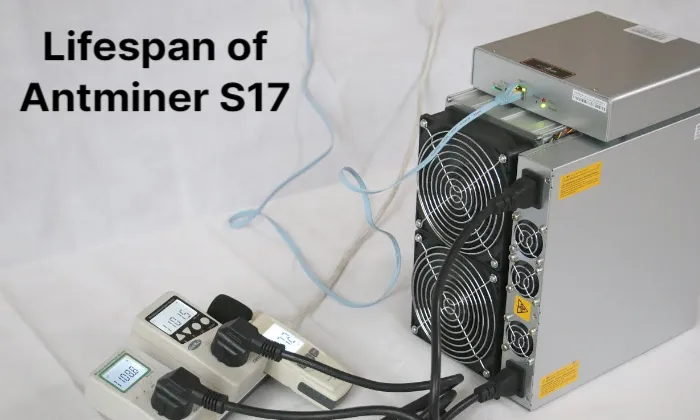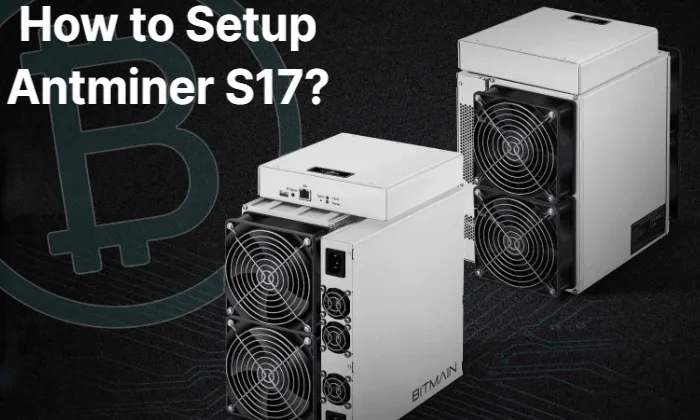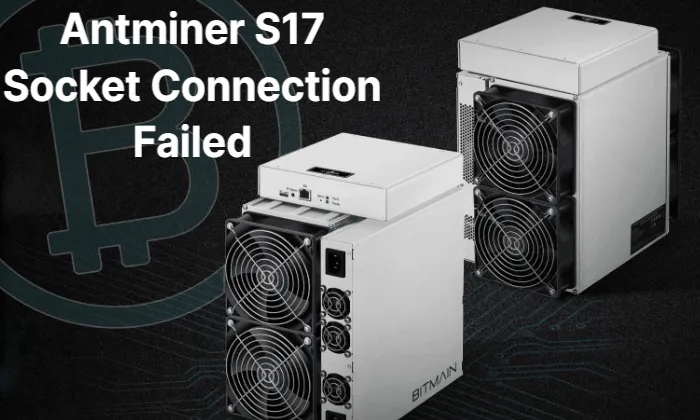Discover the pros and cons of solo mining and pool mining with Antminer S17. Make an informed decision for maximum mining profitability.
Cryptocurrency mining has become an increasingly popular activity, especially with the rise of powerful mining devices like the Antminer S17. When it comes to mining, one crucial decision miners face is whether to opt for solo mining or join a mining pool.
The choice between solo mining and pool mining with an Antminer S17 or any other mining device depends on several factors. Let’s explore what are solo mining and pool mining and the advantages and disadvantages of each.
Table of Contents
What is Solo Mining?
Solo mining implies that a single miner conducts and independently completes the mining process, as you can probably infer from the name. These lone miners rely absolutely nothing on outside parties. Instead, they link their mining computers to native crypto wallet clients and discover blocks.
Solo miners will receive a remarkable incentive if they successfully complete the network mining process. Additionally, the hardware hash power and the network’s overall hash rate have a significant impact on solo mining. However, solo miners were making a profit when the complexity of hash rates was lower. In addition, fluctuating cryptocurrency prices and high electricity costs have an impact on profitability.
Hardware power and network difficulty are the two main determinants of solo mining profitability. The thing about solo mining is that either a miner
gets the solution to complex block data within a short span, or it might extend to years.
Despite the difficulty of finding blocks when mining alone, this method can provide users with higher long-term returns than pool mining. Solo miners must remain patient because the process will depend on a number of variables. However, the majority of users prefer pool mining to mine bitcoin or other altcoins because it can occasionally take longer to find a block.
So, unless you have a lot of hash power, we advise against solo mining. Another thing to keep in mind is that in order to maximize power, miners now substitute FPGAs for CPUs or GPUs. As a result, you need to do extensive research on the costs and potential profits of solo mining.
Advantages of Solo Mining:
- Being the sole owner of substantial rewards is one of the most important and alluring benefits of solo mining. In pool mining, this is simply not possible. The entire profit will only belong to a solo miner if his equipment discovers a new block’s value before others do.
- The likelihood of encountering outages interfering with solo mining is very low. Furthermore, this might lead to increased uptime.
- Solo miners are not responsible for any additional fees. A solo miner actually receives 6.25 Bitcoin plus transaction tax for finding each new block.
- The potential for a higher long-term yield is greater when mining alone. Particularly when we contrast it with pool mining. Furthermore, as solo mining eliminates the requirement for paying a pool fee or transaction fee, rewards increase over time.
- Any effects of pool timeouts are not felt by solo miners. Therefore, a backup pool can be set up by lone miners.
Disadvantages of Solo Mining
- the requirement of a sizable amount of capital to initiate and carry out solo mining
- You run the risk of losing your reward money all at once if another miner or miners with faster computers decide to take part in solving the block you are currently investing your resources in.
- the potential of never having as much computing power as a miner group.
- Miners who invest in well-known cryptocurrencies like Bitcoin run a high risk of losing their entire investment.
- The income generation when mining alone is frequently more unpredictable.
- Due to the fact that solo mining only supports network pull, solo miners frequently waste their valuable time.
What is Pool Mining?
In order to increase the likelihood of discovering a block or completing crypto mining, a group of cryptocurrency miners known as a pool pool their computational resources and power over a network. Members of a mining pool basically pool their processing power and compete to find the block as quickly as possible. They are rewarded with cryptocurrencies if they are successful in finding the block. Additionally, the system divides up the reward money among the participants according to their percentage of pool participation. You should also be aware that a member can only receive rewards if they can provide proof of their involvement in transactions.
Advantages of Pool Mining
- Pool mining offers members the benefit of generating more consistent income.
- Long polling is advantageous to miners in pool mining, enabling them to generate 1–2% more revenue.
- The variety of crypto coins available to miners in pool mining is extensive. As a result, they gain the advantage of switching between different crypto coins, assisting them in selecting the best ones for trading.
Disadvantages of Pool Mining
- Pool mining increases the likelihood of barriers appearing at the pool provider from outside sources.
- Aside from having other security issues, pools are also vulnerable to DOS attacks. Members can, however, change how the pool mining is set up.
- The platform fees are largely covered by the money that miners earn from pool mining. Additionally, it takes a very long time to recover transaction fees.
- Attackers are drawn to pool mining because there is a lot of currency storage there.
Bitcoin mining: Luck and Probability

Consider a single coin with heads and tails on opposite sides. Furthermore, your pal has six coins. Whoever flips the coin first with tails wins. That’s the trick. Given that he has six coins while you only have one, it makes sense that your friend will likely have a better chance of getting tails.
Your friend would have a better chance of winning every time in a perfect world where everything is perfect and mathematics rules the human race. Simply put, because he has 5 more coins than you do, he can beat you roughly 6 times for every coin flip as opposed to just one for each of your 3 chances to win. The likelihood is 6 to 1.
Fortunately, our world is not so strict and luck exists, even if many people are reluctant to believe in it…
Taking into account the luck factor, if you were to flip your coin against your friend’s 6 coins, it is true that you could beat him 6 times, do you agree? It’s also true that even with just one coin in your pocket, you could defeat him one, two, three, four, or five times.
Since the algorithms of different cryptocurrencies are designed differently, it is inevitable that there will be some luck involved in cryptocurrency.
It is important to note, however, that we cannot base an economic investment in mining on luck, we must rely on real data, statistics, and probabilities decide to whether to mine alone or in a mining pool.
How Mining Algorithms Work
Each blockchain has its own algorithm, for example Ethereum uses Ethash, Bitcoin uses SHA-256, Ergo is based on Autolykos and Zcash on Each of these algorithms operates differently, including Equihash.
Each blockchain has a different block creation time as well as a different blockchain’s reward structure for miners.
To decide which cryptocurrency to mine by solo mining or by participating in a mining pool, you need to know the rewards paid by each algorithm and the difficulty of the network.
Finding a block gets more difficult the more difficult the network is.
It happens because the higher the hashrate, (GPU or ASIC mining), the more complicated the algorithm becomes to solve the mathematical calculations to find the block and award it to the miner.
Mining With Hash Power Or Luck
Solo mining can be successful if your luck is in your favour, but you can also spend months or even years finding a block. In this scenario, you could use your work GPU or the graphics card you use for computer gaming to try solo mining any algorithm that permits it, but similar to your friend with 6 coins, it is statistically unlikely that you will find the block by yourself.
Although having more hashrate power does not guarantee you will make more money, it increases your likelihood of finding a block and receiving the rewards. Could you say the same thing in the world we live in?
Pool Or Solo Mining
You must understand your own investing style and level of risk aversion in order to respond to this question. More aggressive miners prefer to mine only because they don’t need to pay fees to mining groups, they don’t have interruptions and they are attracted by the likelihood of earning more cryptocurrencies in the long run.
On the other hand, a mining group is best if you’re a cautious miner who prefers to protect your money and avoid exposing yourself to more volatility than the crypto ecosystem itself has. The security of consistent earnings over the short, medium, and long terms will be provided for you even though you will be charged a fee for each payment you receive.
Cryptocurrency mining is, like any investment, a risk. You must be aware of who you are and what you want out of life. In this manner, you will be able to decide whether to mine in a pool or on your own.
Conclusion
Several factors, such as your risk tolerance, resource availability, and preferences, will determine whether you choose to mine solo or in a pool with an Antminer S17. Solo mining has the potential to yield higher rewards but is also more risky, has a variable income, and requires a sizable hashing power investment. However, you will have to split the rewards and rely on the pool’s infrastructure. Pool mining offers a consistent income stream, lower variance, and easier setup.
In the end, the choice should be in line with your objectives and situation. Solo mining may appeal to some miners more than pool mining for its stability and predictability, whereas it may also offer greater thrills and the potential for significant rewards. To maximize your mining profitability, regardless of the route you take, it’s critical to stay up to date on the latest mining trends, network difficulty changes, and the overall cryptocurrency market.
FAQs
Is It Better to Mine in a Pool Or Solo?
Go solo mining if you have millions to invest; otherwise, joining a pool would be preferable.
Is It Better to Use a Mining Pool?
However, joining a pool is a much more profitable way to mine Bitcoin, especially since its difficulty increases with every coin awarded. Unless you have the funds to create your own or purchase numerous cutting-edge ASIC miners, it is best to join a pool in order to remain competitive.
What Type of Mining is Most Profitable?
Due to the potential rewards, mining Bitcoin is frequently considered the most lucrative crypto activity. However, ASIC mining, like that of the Antminer S17, is much more intensive than mining with fiat currencies because the required processing, energy, and computing power is significantly higher.
Is Solo Mining Worth It?
One of the main benefits of solo mining is the possibility of receiving the entire block reward if you are the first to figure out the equation. However, the chances of solving a block solo are very low. This is due to the extremely high current Bitcoin difficulty.



